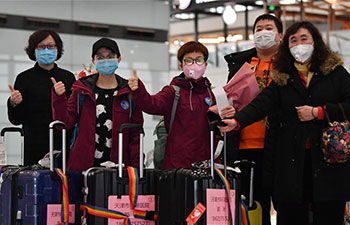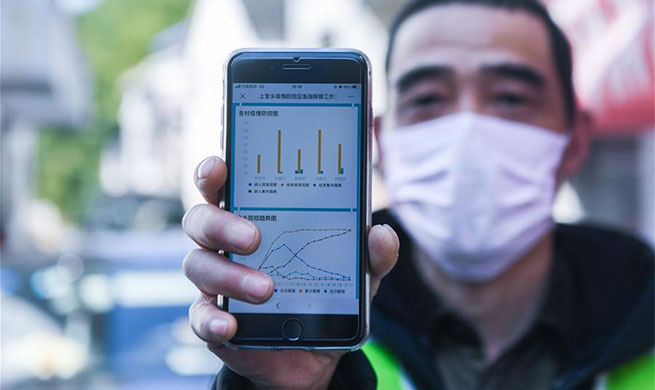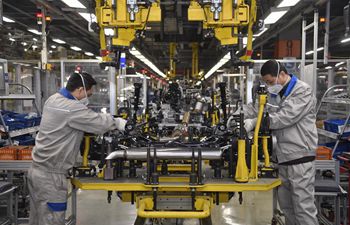ATHENS, Feb. 20 (Xinhua) -- Global shipping has adjusted well to the new emission restrictions introduced last month by the International Maritime Organization (IMO), according to sector experts and professionals who converged here on Thursday for a major international shipping conference.
However, uncertainty prevails over the course the industry should take regarding the IMO's major target for carbon-free fuel as of 2050, as well as other partial targets in between, they said.
Shipping company representatives at the annual Capital Link Greek Shipping Forum agreed with the view recently expressed by Kitack Lim, the IMO Secretary-General, about the smooth adaptation of the industry to the new regulation, applied from Jan. 1, 2020, forcing vessels to use fuel with a sulfur ratio of no more than 0.5 percent.
Nearly two months on, "the sky has not fallen on us," said Stamatis Fradelos, Business Development Manager at Norwegian classification society DNV GL, adding "though concerns in the industry still remain."
George Saroglou, Chief Operating Officer at Greek-owned company Tsakos Energy Navigation, agreed, noting that "the transition has generally been smooth. The availability of compliant fuel has been sufficient and the technical issues seem to be improving as well."
However the industry appears very uncertain regarding the transition to fuel and propulsion technologies towards the ultimate IMO goal of complete decarbonization of shipping fuel. Company representatives called for more guidance by regulators and cooperation among all parties involved.
"There is a lot of insecurity in the market," said Andreas Hadjipetrou, Managing Director at Cyprus-based Columbia Shipmanagement: "We know the target, but not the conditions for the next 30 years."
It would be really helpful to have a real direction from the regulators, noted Jeffrey D. Pribor, Chief Financial Officer at International Seaways, headquartered in New York.
Representing the fuel supply industry, Claire Wright, Business Economics Manager at London-based Shell International Trading and Shipping Company, warned that it would be very difficult to achieve the IMO's goal of zero carbon fuels after 2050.
"We need cooperation, we need support from the regulators, and we need significant technological development," said Wright.
There is not sufficient infrastructure for alternative fuel refueling, and the industry needs a bunkering network around the world, suggested Jason Stefanatos, Business Development Manager at DNV GL.













